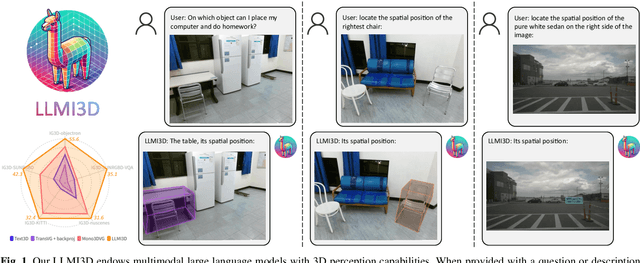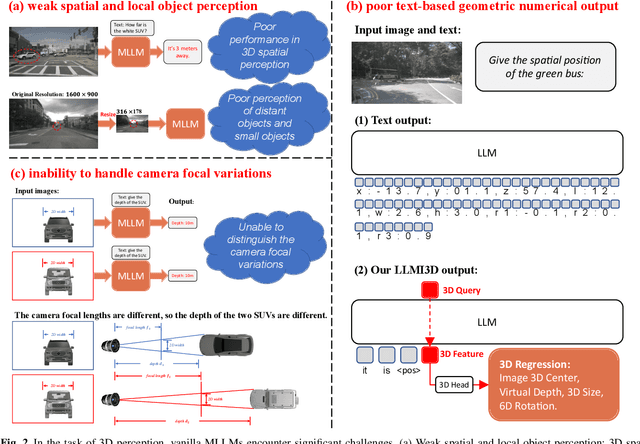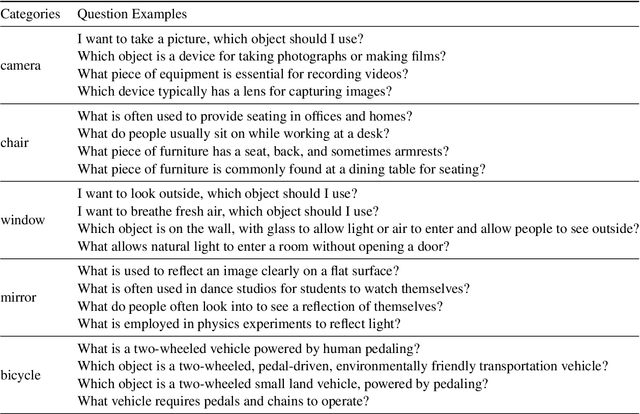LLMI3D: Empowering LLM with 3D Perception from a Single 2D Image
Paper and Code
Aug 14, 2024



Recent advancements in autonomous driving, augmented reality, robotics, and embodied intelligence have necessitated 3D perception algorithms. However, current 3D perception methods, particularly small models, struggle with processing logical reasoning, question-answering, and handling open scenario categories. On the other hand, generative multimodal large language models (MLLMs) excel in general capacity but underperform in 3D tasks, due to weak spatial and local object perception, poor text-based geometric numerical output, and inability to handle camera focal variations. To address these challenges, we propose the following solutions: Spatial-Enhanced Local Feature Mining for better spatial feature extraction, 3D Query Token-Derived Info Decoding for precise geometric regression, and Geometry Projection-Based 3D Reasoning for handling camera focal length variations. We employ parameter-efficient fine-tuning for a pre-trained MLLM and develop LLMI3D, a powerful 3D perception MLLM. Additionally, we have constructed the IG3D dataset, which provides fine-grained descriptions and question-answer annotations. Extensive experiments demonstrate that our LLMI3D achieves state-of-the-art performance, significantly outperforming existing methods.
 Add to Chrome
Add to Chrome Add to Firefox
Add to Firefox Add to Edge
Add to Edge